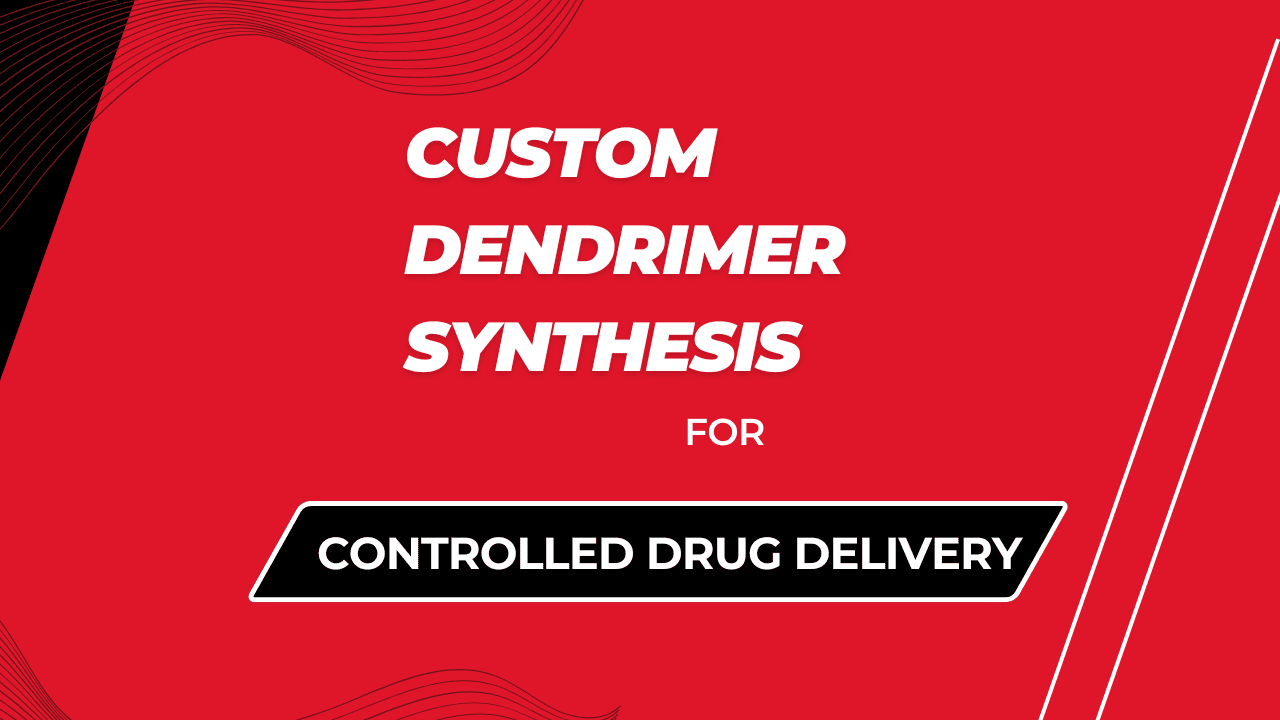Introduction
The stability of pharmaceutical compounds is a crucial factor in drug development, affecting both the efficacy and safety of therapeutic products. Cyclodextrin-based dendrimers have emerged as a promising technology for enhancing drug stability due to their unique structural and chemical properties. By encapsulating drugs within these advanced carriers, researchers can improve the solubility, bioavailability, and overall stability of pharmaceuticals. This blog delves into the significance of stability studies for drugs encapsulated in cyclodextrin-based dendrimers, exploring how these studies are conducted, their implications, and the benefits they offer.
Understanding Cyclodextrin-Based Dendrimers
Cyclodextrin-based dendrimers combine the advantageous properties of cyclodextrins and dendritic polymers. Cyclodextrins are cyclic oligosaccharides with a hydrophobic interior that can form inclusion complexes with various molecules. Dendrimers, on the other hand, are highly branched macromolecules with a core structure and multiple functional groups at the periphery. When cyclodextrins are integrated into dendrimer structures, they create a versatile and stable platform for drug encapsulation.
Importance of Stability Studies
- Ensuring Efficacy
Stability studies are essential for determining whether encapsulated drugs retain their therapeutic efficacy over time. Degradation of the drug can lead to reduced effectiveness, potentially compromising patient outcomes. By assessing the stability of drugs within cyclodextrin-based dendrimers, researchers can ensure that the encapsulated drug maintains its intended potency throughout its shelf life.
- Preventing Degradation
Drug degradation can occur due to various factors, including exposure to light, heat, moisture, and oxygen. Cyclodextrin-based dendrimers can offer protection against these degradation factors by encapsulating the drug in a stable environment. Stability studies help evaluate how well these dendritic carriers prevent drug degradation compared to traditional formulations.
- Improving Shelf Life
The shelf life of a pharmaceutical product is a critical consideration for manufacturers and consumers alike. By enhancing drug stability, cyclodextrin-based dendrimers can extend the shelf life of encapsulated drugs, reducing the frequency of repackaging and minimizing waste. Stability studies provide insights into the expected shelf life and storage conditions required for optimal drug preservation.
Conducting Stability Studies
- Experimental Design
Stability studies involve a series of experiments designed to assess the stability of drugs encapsulated in cyclodextrin-based dendrimers under various conditions. The experimental design typically includes:
- Sample Preparation: Preparing drug-dendrimer complexes and placing them in suitable storage conditions.
- Storage Conditions: Exposing samples to different environmental conditions such as varying temperatures, humidity levels, and light exposure.
- Time Points: Analyzing samples at predetermined time intervals to monitor changes in drug stability.
- Analytical Techniques
Various analytical techniques are employed to evaluate the stability of encapsulated drugs, including:
- High-Performance Liquid Chromatography (HPLC): Used to measure the concentration of the drug and detect any degradation products.
- Mass Spectrometry (MS): Helps identify and quantify the drug and its degradation products at a molecular level.
- Spectroscopic Methods: Techniques such as UV-Vis spectroscopy and infrared spectroscopy provide information on changes in the drug’s chemical structure.
- Differential Scanning Calorimetry (DSC): Assesses thermal properties and stability of the drug-dendrimer complex under heat.
- Data Interpretation
The data obtained from stability studies are analyzed to determine the following:
- Degradation Kinetics: Understanding the rate at which the drug degrades over time and under specific conditions.
- Shelf Life Prediction: Estimating the product’s shelf life based on observed stability data.
- Optimal Storage Conditions: Identifying the best storage conditions to maintain drug stability and efficacy.
Benefits of Cyclodextrin-Based Dendrimers in Stability
- Enhanced Protection
Cyclodextrin-based dendrimers provide a protective environment for encapsulated drugs, shielding them from external factors such as moisture, oxygen, and light. This protection helps in maintaining the drug’s chemical integrity and preventing degradation.
- Controlled Release
The dendritic structure of cyclodextrin-based carriers allows for controlled release of the encapsulated drug. This controlled release can further contribute to the stability of the drug by preventing rapid fluctuations in drug concentration and maintaining consistent therapeutic levels.
- Improved Solubility
Many drugs suffer from poor solubility, which can lead to instability and ineffective delivery. Cyclodextrin-based dendrimers enhance the solubility of these drugs, reducing the likelihood of precipitation or crystallization and thereby improving overall stability.
Applications and Case Studies
- Pharmaceutical Formulations
Stability studies of cyclodextrin-based dendrimers have been applied to various pharmaceutical formulations, including oral, injectable, and topical products. For example, stability studies of anticancer drugs encapsulated in cyclodextrin-based dendrimers have shown improved stability and prolonged shelf life compared to conventional formulations.
- Biopharmaceuticals
In the field of biopharmaceuticals, cyclodextrin-based dendrimers have been used to stabilize sensitive biological molecules such as peptides and proteins. Stability studies have demonstrated that these dendritic carriers can protect biopharmaceuticals from degradation due to environmental stressors.
Future Directions
- Optimization of Formulations
Ongoing research aims to optimize the formulations of cyclodextrin-based dendrimers for different types of drugs and delivery systems. This includes fine-tuning the dendrimer structure, drug-loading capacity, and release characteristics to enhance stability and therapeutic efficacy.
- Regulatory Considerations
Ensuring compliance with regulatory guidelines for stability testing is essential for the approval and commercialization of drug products. Future research will focus on standardizing stability testing protocols and addressing regulatory requirements for cyclodextrin-based dendrimer formulations.
- Innovative Applications
As the field of drug delivery continues to evolve, new applications for cyclodextrin-based dendrimers are emerging. Research is exploring their potential use in areas such as personalized medicine, combination therapies, and novel drug delivery routes.
Conclusion
Cyclodextrin-based dendrimers represent a significant advancement in drug delivery technology, offering enhanced stability for a wide range of pharmaceuticals. Through comprehensive stability studies, researchers can ensure that drugs encapsulated in these innovative carriers maintain their efficacy, safety, and shelf life. As the technology continues to evolve, cyclodextrin-based dendrimers are poised to play a crucial role in the future of pharmaceutical development, improving drug stability and therapeutic outcomes for patients.
